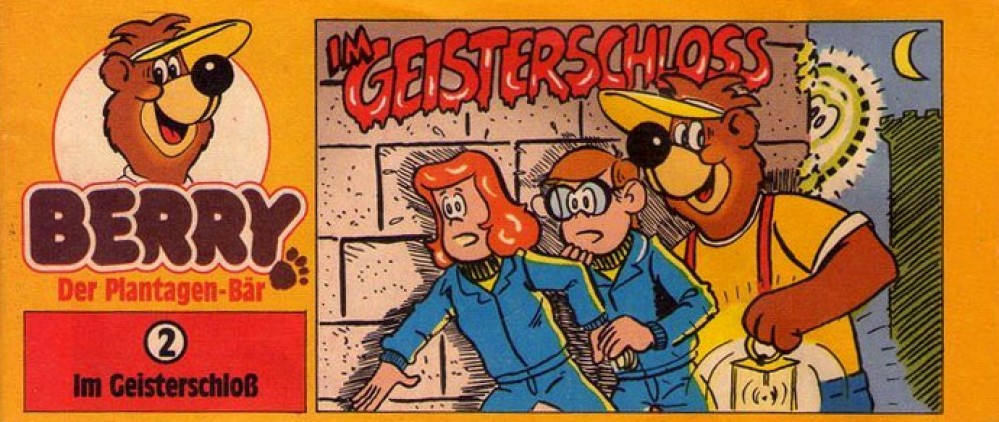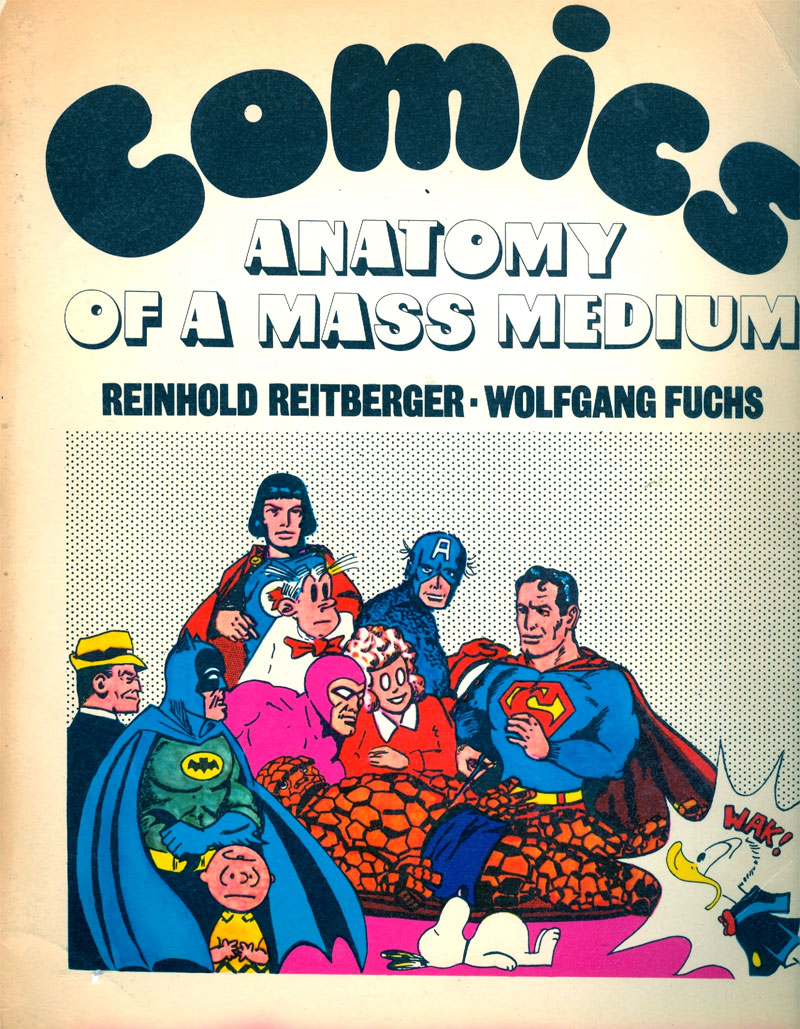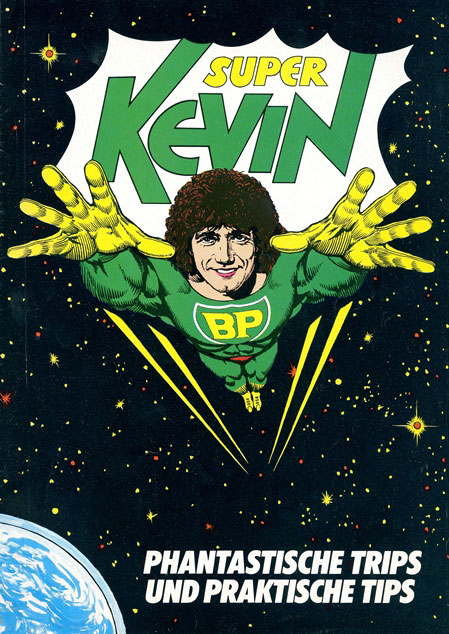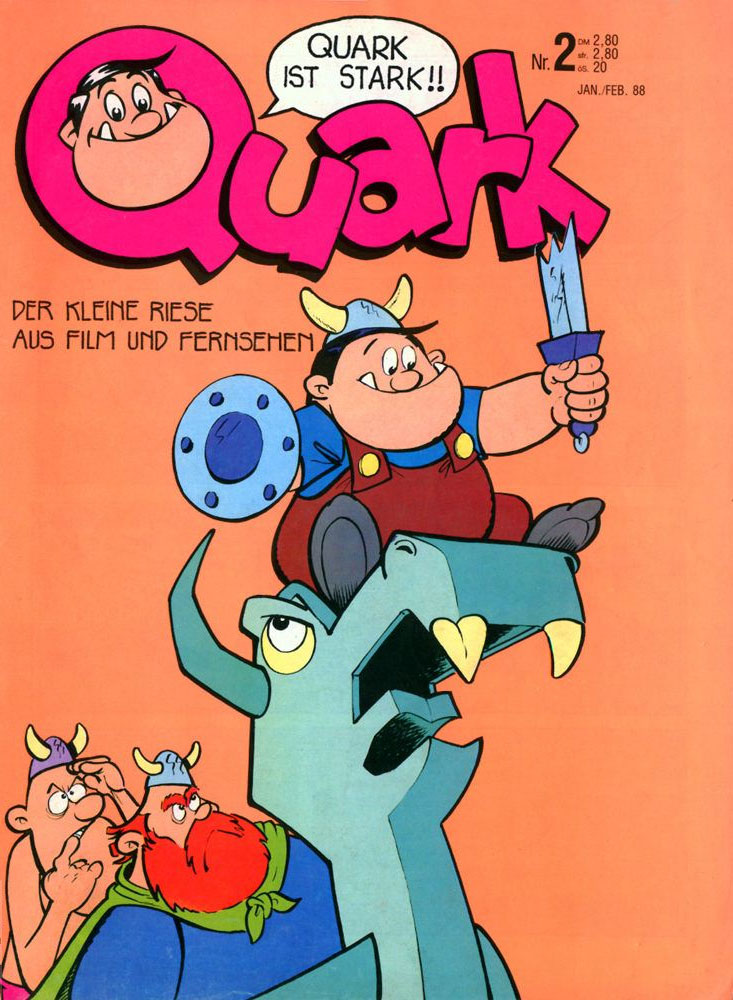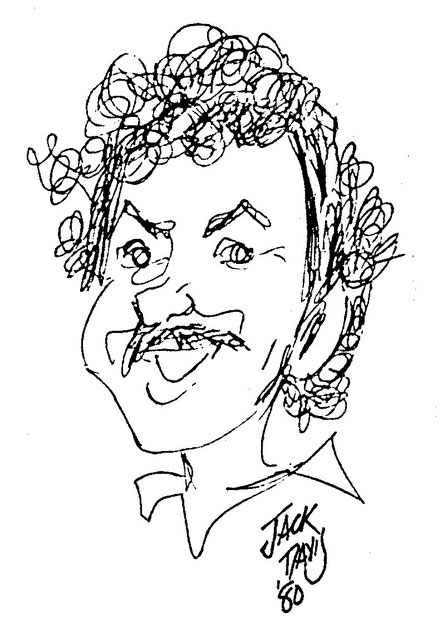Wolfgang J. Fuchs was a German journalist and writer, best known along with Reinhold Reitberger as the co-author of 'Anatomie eines Massenmediums' ('Anatomy of a Mass Medium', 1971) and 'Comics-Handbuch' ('Comics Manual', 1978). Both works were the first standard works on the subject of comics in the German language and also appeared in translation. Fuchs was editor of the comic magazines Panel, Peanuts and Garfield and a prominent translator of several international comic series. He was the scriptwriter of two advertising comics, namely 'Super Kevin' (1979, art by Themistocles Kannelakis) and 'Berry der Plantagenbär' (1985-1990, with Reinhold Reitberger). For this latter title, Fuchs helped with the drawings too. He also wrote stories for Günther Mayrhofer's comic strip 'Quark' (1987-1988).
Early life and career
Wolfgang J. Fuchs was born in 1945 in Unsleben, Lower Franconia. As a child, he was an avid reader and cinemagoer. Among his favorite comics were Hal Foster's 'Prince Valiant', Carl Barks' 'Donald Duck' stories and Floyd Gottfredson's 'Mickey Mouse' strips. Together with his childhood friend Reinhold C. Reitberger, Fuchs shared, read and created comics together. In 1965, Fuchs went to the first International Traffic Exhibition in Munich, because he heard that Walt Disney and his wife would visit the event. He managed to meet him and spend the whole day in his presence.
Wolfgang Fuchs studied civil engineering, but dropped out after only one semester, eventually graduating as a journalist with a minor in American and English studies. Fuchs also took a correspondence drawing and graphics course and in 2005, he obtained his university degree as a Magister Artium.
The cover of 'Comics - Anatomy of a Mass Medium' is a parody of Rembrandt Van Rijn's 'The Anatomy Lesson of Dr. Tulp'. We recognize from left to right: Chester Gould's Dick Tracy, Bob Kane's Batman, Hal Foster's Prince Valiant, Chic Young's Dagwood, Lee Falk's The Phantom, Harold Gray's Little Orphan Annie, Joe Simon and Jack Kirby's Captain America, Siegel & Shuster's Superman, Stan Lee & Jack Kirby's The Thing and below Charles M. Schulz' Charlie Brown & Snoopy and Walt Disney's Donald Duck.
Books about comics
During the 1960s and 1970s, comics became the subject of more academic interest. In various countries, fans published essays, articles, books, encyclopedias and guides about the history of the medium. However, in the German language there was no equivalent, despite the fact that the Swiss artist Rodolphe Töpffer and German artist Wilhelm Busch were historically important comic pioneers. Fuchs and his friend Reitberger had written a colloquium about comics for a series of lectures at the LMU America Institute. The professor who oversaw the project told them that, since they had done so much work, they really ought to find a publisher. And so, 'Anatomie eines Massenmediums' ('Anatomy of a Mass Medium', 1971) hit the stores. It became an instant success and was also translated into English, Dutch and Spanish. A funny anecdote about the first edition was that Carl Barks' last name was originally misspelled as 'Carl Barx', bringing up an analogy with Karl Marx, the German economist who invented Communism. Reitberger and Fuchs only found out that the name was misspelled when the book was ready for printing, and it took until the third reprint before the mistake could be corrected. The 1982 reprint, 'Das Grosse Buch der Comics' ('The Big Book of Comics') came with a vinyl record with sound recordings.
Fuchs and Reitberger later published a follow-up, 'Comics Hand-Buch' ('Comics Manual', Rowohlt Publishing, Reinbek, 1978), which was closer to a genuine reference book. Fuchs also wrote 'Compact mini Lexicon - Comic Helden von Asterix bis Zorro' (Compact, 1984). He additionally made contributions to international reference guides like Maurice Horn's 'The World Encyclopedia of Comics' and Jerry Bails' and Hames Ware's 'The Who's Who of American Comic Books' (1973-1976).
Magazines
In 1971, Fuchs and Reitberger published a quarterly comic fanzine, called Panel, but it was canceled after only one issue. Between 1974 and 1975, Fuchs was an editor for Peanuts, a comic magazine by the gvm Gesellschaft für Verlagsmanagement, which wanted to cash in on the broadcast of the animated 'Peanuts' TV specials on ZDF, based on Charles M. Schulz' comic series. Peanuts was mostly inspired by the Spanish-language equivalent Carlitos. In his capacity as editor, Fuchs translated and lettered comics like 'Peanuts', as well as Russell Myers' 'Broom-Hilda' and Rudolph Dirks' 'The Captain and the Kids'. He also wrote and illustrated articles about baseball, labyrinths and made his own comics. However, Peanuts didn't last long, because the 'Peanuts' specials weren't broadcast often enough on TV as expected. Apart from that, the 'Peanuts' license holders didn't want more monthly episodes in this "foreign" magazine than in U.S. publications.
Between 1987 and 1994, Fuchs was editor-in-chief of Garfield magazine, based on Jim Davis' popular cartoon cat of the same name. The magazine not only appeared in German, but in seven other European countries too. Rolf Kauka's son-in-law Uli Pohl was in charge of the concept.
Comic events
In 1979, Fuchs curated a comics exhibition in Vienna, the first of its kind in the Austrian capital. In 2017, he and Heiner Lünstedt co-organized the Comics Festival of Münich.
Berry #12, the only story written and drawn solely by Wolfgang Fuchs.
Advertising comics
In 1979, Fuchs wrote an advertising comic for BP to promote energy saving, titled 'Super Kevin'. It starred British association football player Kevin Keegan in the title role, making it also a celebrity comic. The artwork was done by Themistocles Kannelakis.
Between 1985 and 1990, Fuchs and Reitberger worked for the cocoa drink brand Kaba, which used the anthropomorphic bear 'Berry der Plantagenbär' ('Berry the Plantation Bear') as their mascot. Fuchs wrote stories for a series of advertising comics starring Berry and a group of children, which he also lettered. Reitberger drew the stories while Fuchs inked. The twelfth episode of 'Berry', however, was completely written and drawn by Fuchs himself. About 45 episodes were published.
Quark
In 1986, the animated feature film 'Walhalla' ran in theaters, based on Peter Madsen's comic series of the same name. The picture featured the side character Quark the troll, who was so popular with viewers that Swan Film Production created a spin-off animated TV series, 'Quark' (1987). Bavaria Comic Verlag launched a series of comic books about Quark in 1987-1988, written by Fuchs and drawn by Günther Mayrhofer.
Translations
Fuchs was also a notable translator of non-German comic series, such as Hal Foster's 'Prince Valiant', Jim Davis' 'Garfield', Marvel Comics' 'Fantastic Four', René Goscinny & Albert Uderzo's 'Astérix', George Herriman's 'Krazy Kat', Lyonel Feininger's 'The Kin-der Kids', Winsor McCay's 'Little Nemo', Brian Fies' 'Mom's Cancer' and various Disney comics. He wrote the forewords to the German-language editions of Carl Barks' 'Donald Duck' comics, 'Barks Comics & Stories'. While Dr. Erika Fuchs is the best-known Disney translator in Germany, Wolfgang wasn't related to her, though they did meet a few times. He also attended her funeral.
Other writings
Outside of his comics work, Fuchs wrote several articles for radio, TV (Bayerischer Rundfunk) and magazines, for instance for the German edition of Playboy. Most were about the subject of film. He wrote articles for the cinematic guide 'Filmnotizbuch 1978-1979' and published books about Hollywood legends like Humphrey Bogart ('Humphrey Bogart: Cult Star, Taschen, 1988'), James Dean ('James Dean: Spuren eines Giganten', Taschen, 1988), Woody Allen ('Die vielen Gesichter des Woody Allen', Taschen, 1988) and Mickey Mouse ('Mickey Mouse - Das ist mein Leben', Unipart-Vlg, Remseck, 1991).
Recognition
Fuchs' translation of Brian Fies' 'Mom's Cancer' (as 'Mutter hat Krebs') won the 2007 Deutschen Jugendliteraturpreis (German Youth Literature Award).
Death
Wolfgang Fuchs passed away in 2020 at the age of 74.
Wolfgang Fuchs drawn by Jack Davis in 1980.


